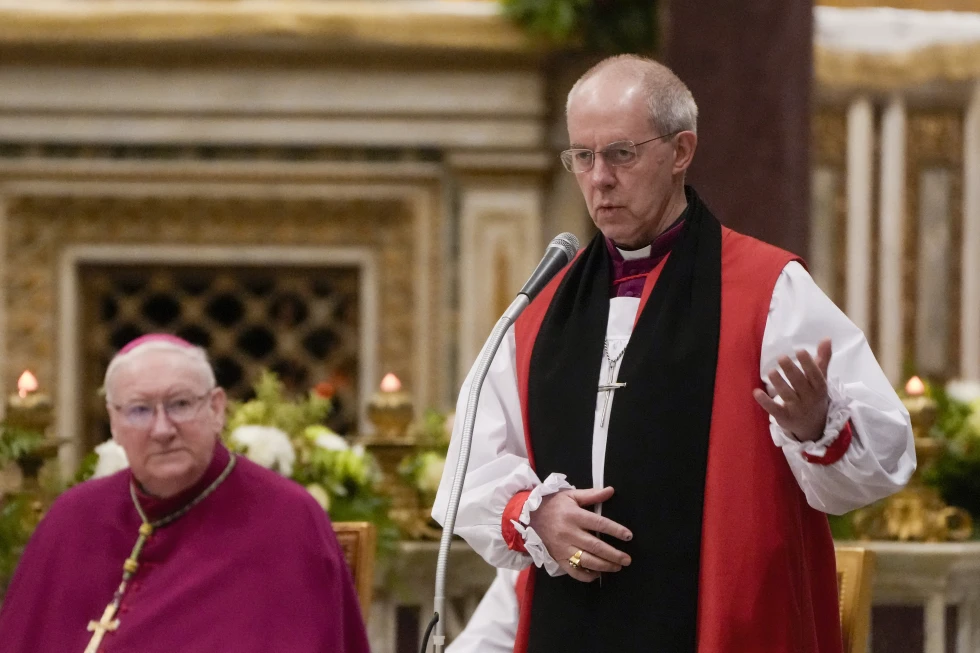
LONDON (AP) — The leader of the Church of England said Monday that Britain will undermine its standing in the world if it enacts a government plan to send some asylum-seekers on a one-way trip to Rwanda.
Archbishop of Canterbury Justin Welby said U.K. politicians were seeking to “outsource our moral and legal responsibility for asylum seekers and refugees.”
Speaking as a member of Parliament’s upper chamber, the House of Lords, Welby said that “a pick-and-choose approach to international law undermines our global standing.”
Members of the Lords on Monday began debating the government’s Safety of Rwanda Bill, which is designed to overcome a legal block on a plan to send migrants who reach Britain across the English Channel in small boats to the East African country.
The policy, under which the asylum-seekers would stay permanently in Rwanda, is key to Prime Minister Rishi Sunak’s pledge to “stop the boats” bringing unauthorized migrants to the U.K. Sunak argues that deporting unauthorized asylum-seekers will deter people from making risky journeys and break the business model of people-smuggling gangs.
No one has yet been sent to Rwanda under the plan, which human rights groups call inhumane and unworkable. The U.K. Supreme Court ruled in November that the policy was illegal because Rwanda isn’t a safe country for refugees.
In response to the court ruling, Britain and Rwanda signed a treaty pledging to strengthen protections for migrants. Sunak’s Conservative government argues the treaty allows it to pass a law declaring Rwanda a safe destination.
If approved by Parliament, the law will allow the government to “disapply” sections of U.K. human rights law when it comes to Rwanda-related asylum claims and make it harder to challenge the deportations in court.
Conservative Lords member Keith Stewart, speaking for the government in the Lords, said the bill “puts beyond legal doubt the safety of Rwanda” and would “deter people from taking unsafe and illegal routes into the country.”
The bill was approved by the House of Commons earlier this month, though only after 60 members of Sunak’s governing Conservatives rebelled in an effort to make the legislation tougher.
Many members of the Lords want to defeat or water down the bill. Unlike the Commons, the governing Conservatives do not hold a majority of seats in the Lords.
Ultimately, the upper house can delay and amend legislation but can’t overrule the elected Commons. Its members on Monday rejected a bid by the opposition Liberal Democrats to toss out the bill, sending it on for further scrutiny.
But the strength of opposition aired in the chamber on Monday suggested the bill is in for a long, hard fight over the coming weeks.
Former Labour interior minister David Blunkett called it a “shoddy” bill, while Terence Etherton, a former High Court judge, said it was “a travesty.”
Peter Hennessy, an eminent historian, said that if the bill becomes law, “the government will have removed us from the list of rule-of-law nations.”
Liberal Democrat politician Mike German said the legislation “treats some of the most vulnerable people in the world — people who are facing persecution, torture and fleeing for their lives — as undesirable.”